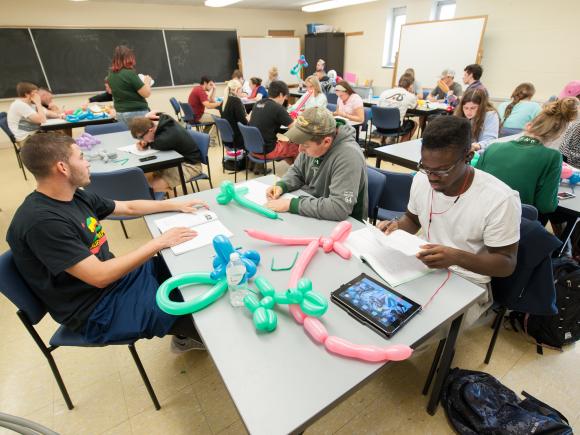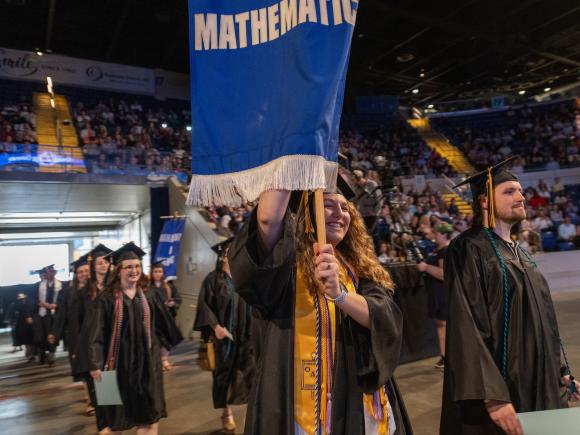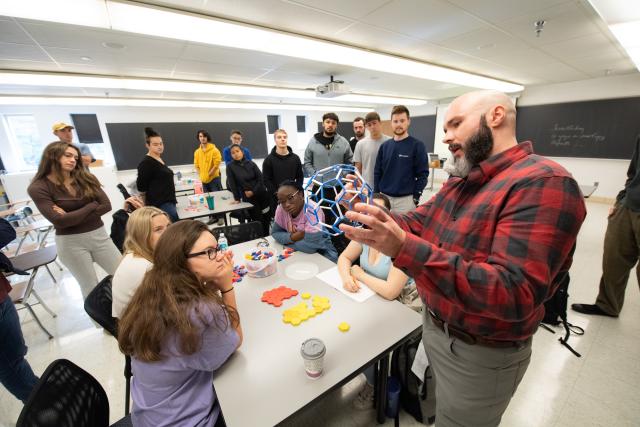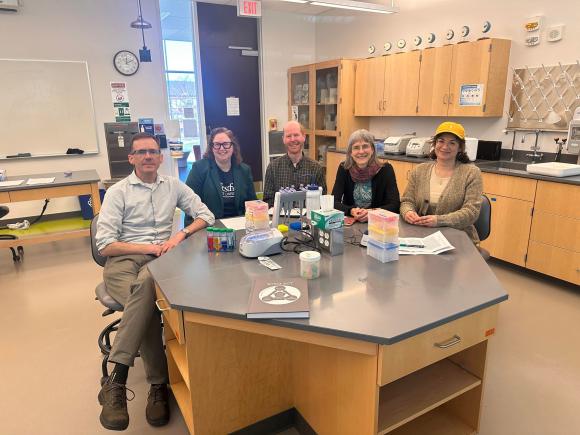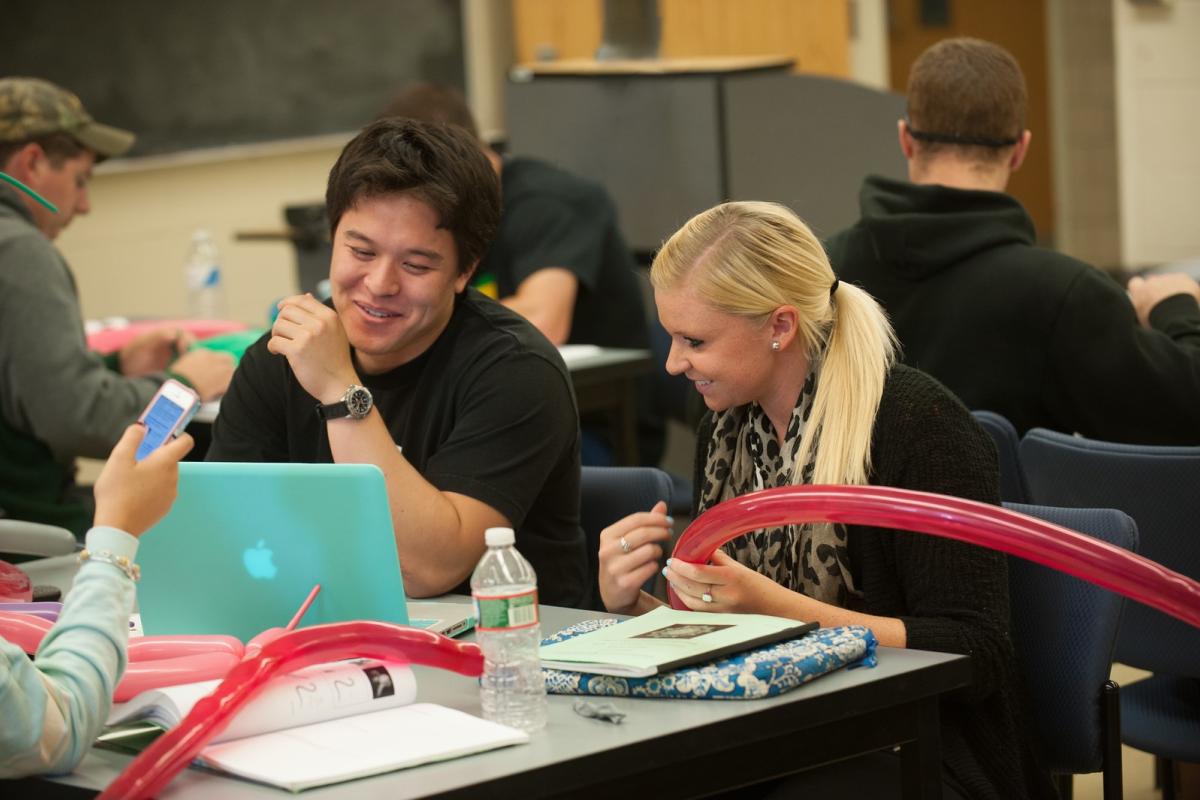
At Westfield State University, you’ll do more than study mathematics — you’ll live it, teach it, and bring it to life for the next generation. Our Middle School Mathematics Licensure program for grades 5–8 combines a strong academic foundation with an active, hands-on approach to learning. From the first year, you’ll engage in projects, portfolios, group work, and outdoor activities like sidewalk chalk mathematics, making math creative, collaborative, and meaningful.
Work closely with passionate faculty who prioritize your success. Many courses use customized materials developed by professors, instead of traditional textbooks, giving you an engaging and dynamic learning experience. As you develop your communication skills through writing and presenting on mathematical topics, you'll also have the chance to participate in professional conferences and community volunteering, gaining valuable real-world experience.
Westfield State’s program prepares you to meet Massachusetts licensure requirements and equips you with the tools for a rewarding career in education. Our graduates go on to make a meaningful impact in both public and private school classrooms.
